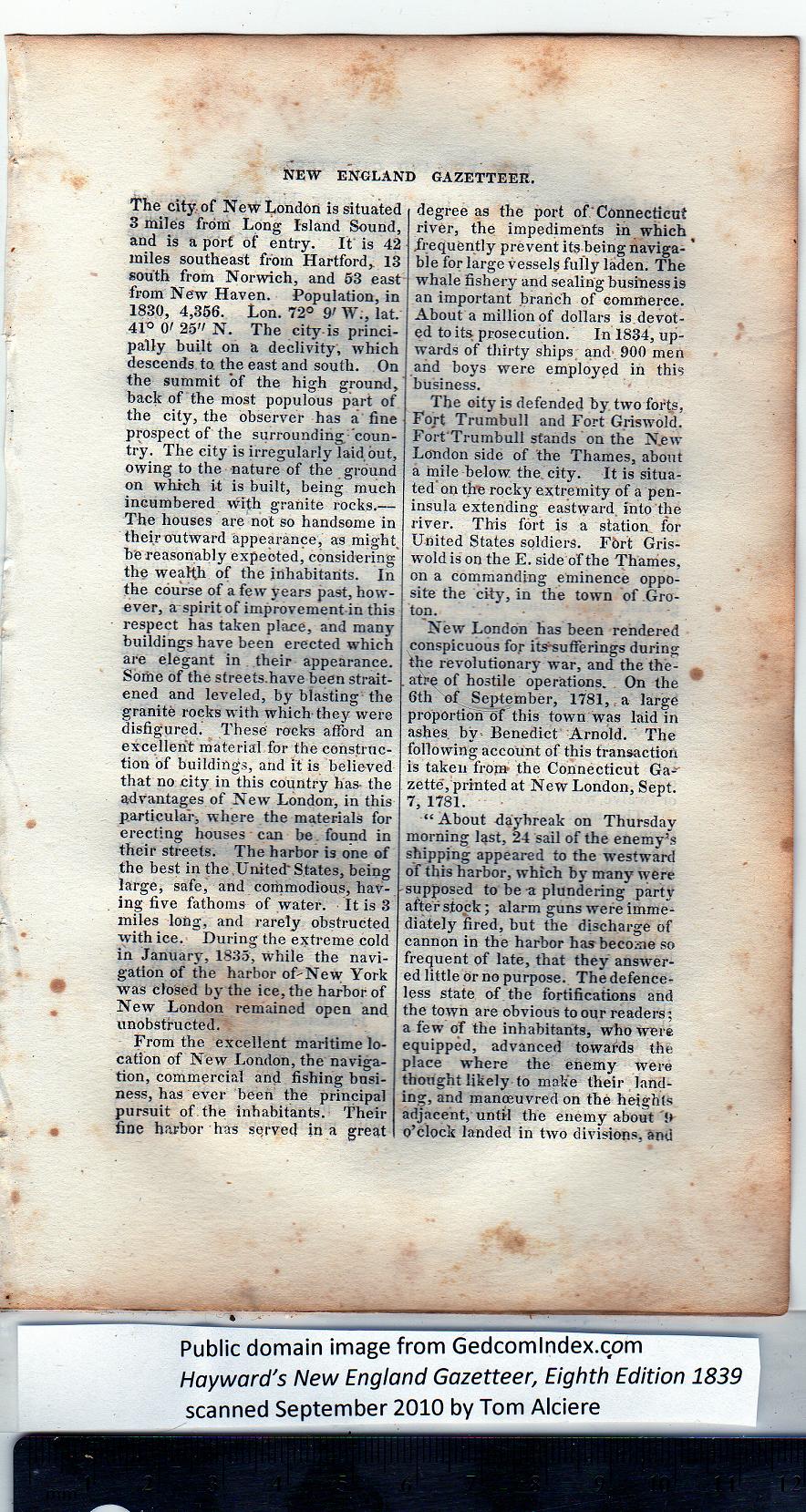|
The city, of New London is situated
3 miles from' Long Island Sound,
and is a port of entry. It is 42
miles southeast from Hartford,. 13
south from Norwich, and 53 east
from New Haven. Population, in
1830, 4,356. Lon. 72° 9' W., lat.
4F° 0; 25,; N. The city is princi-
pally built on a declivity, which
descends to. the east and south. On
the summit of the high ground,
back of the most populous part of
the city, the observer has a fine
prospect of the surrounding coun-
try. The city is irregularly laid out,
owing to the nature of the ground
on which it is built, being much
incumbered with granite rocks.—
The houses are not so handsome in
their outward appearance, as might,
he reasonably expected, considering
the wealth of the inhabitants. In
the course of a few years past, how-
ever, a spirit of improvement in this
respect has taken place, and many
buildings have been erected which
are elegant in their appearance.
Some of the streets.have been strait-
ened and leveled, by blasting the
granite rocks with which-they were
disfigured. These' rocks afford an
excellent material for the construc-
tion of buildings, and it is believed
that no city in this country has- the
advantages of New London, in this
particular, where the materials for
erecting houses can be found in
their streets. The harbor is one of
the best in the United* States, being
large, safe, and commodious, hav-
ing five fathoms of water. It is 3
miles long, and rarely obstructed
with ice. During the extreme cold
in January, 1835, while the navi-
gation of the harbor of-New York
was closed by the ice, the harbor of
New London remained open and
unobstructed. |
From the excellent maritime lo-
cation of New London, the naviga-
tion, commercial and fishing busi-
ness, has ever been the principal
pursuit of the inhabitants. Their
fine harbor has served in a great
degree as the port of'Connecticut
river, the impediments in which
Frequently prevent its being naviga-
ble for large vessels fully laden. The
whale fishery and sealing business is
an important branch of commerce.
About a million of dollars is devot-
ed to its. prosecution. In 1834, up-
wards of thirty ships and 900 men
and boys were employed in this
business.
The oity is defended by two forts,
Fort Trumbull and Fort Griswold.
Fort'Trumbull stands on the New
London side of the Thames, about
a mile below the. city. It is situa-
ted on the rocky extremity of a pen-
insula extending eastward, into the
river. This fort is a station for
United States soldiers. Fbrt Gris-
wold is on the E. side of the Thames,
on a commanding eminence oppo-
site the city, in the town of Gro-
ton.
New London has been rendered
conspicuous for its^ufferings during
the revolutionary war, and the the-
atre of hostile operations. On the
6th of September, 1781, a large
proportion of this town was laid in
ashes, by- Benedict Arnold. The
following account of this transaction
is taken from the Connecticut Ga-
zette', printed at New London, Sept.
7, 1781.
“ About daybreak on Thursday
morning last, 24 sail of the enemy’s
shipping appeared to the westward
of this harbor, which by many were
supposed to be a plundering party
after stock; alarm guns were imme-
diately fired, but the discharge of
cannon in tbe harbor has become so
frequent of late, that they answer-
ed little or no purpose. The defence-
less state of the fortifications and
the town are obvious to our readers:
a few of the inhabitants, who were
equipped, advanced towards the
place where the enemy were
thought likely to make their land-
ing, and manoeuvred on the heights
adjacent, until the enemy about '!»
o’clock landed in two divisions, and |
